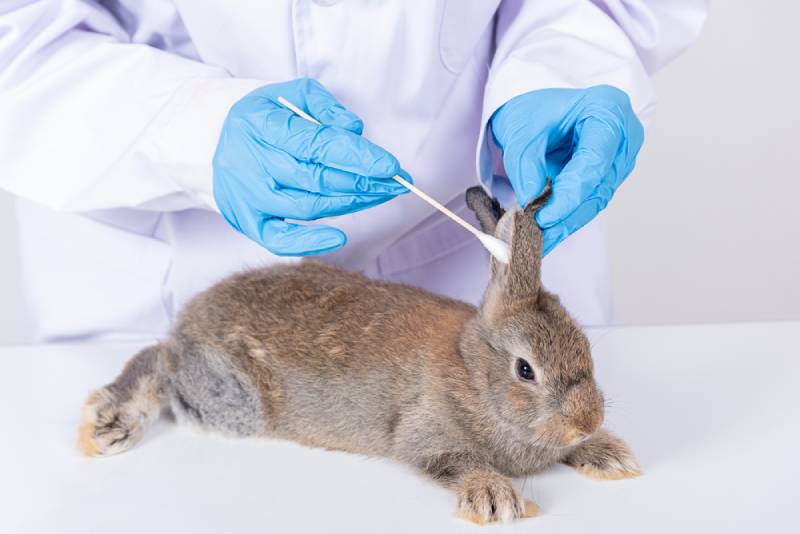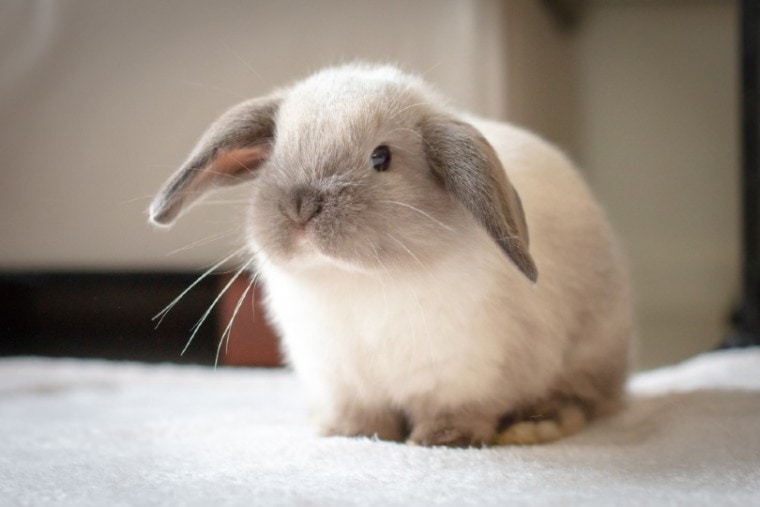
Rabbit grunting can be a strange and sometimes unsettling sound for pet owners and animal enthusiasts. Grunting is one of the many ways rabbits communicate, and understanding what it means can help improve your relationship with your furry friend. In this article, we’ll take a deep dive into why rabbits grunt, providing possible reasons why your rabbit might be making this sound.
The 13 Likely Reasons Rabbits Grunt
1. Sign of Displeasure
Grunting is a common way for rabbits to express their disapproval or anger. This could be due to many reasons, such as a sudden noise, unfamiliar animals, or a change in their living environment. If you notice your rabbit grunting, giving them space until they calm down is best.

2. Needing Attention
Rabbits are social creatures and enjoy being around their humans or other rabbits. If your rabbit grunts, it may be a sign that they want your attention or affection. Spend some quality time with your rabbit to make them feel loved and cared for.
3. Protective Behavior
Rabbits can be overprotective of their space, especially if another animal or person is around. Grunting in this case is a warning sign that they are not happy with the situation. It’s crucial to give your rabbit their private space and not to interfere with their territory.

4. Dawn or Dusk Behavior
Rabbits are crepuscular animals, meaning they are most active during dawn and dusk. They may grunt during these times to communicate with other rabbits or alert others of danger.
5. Pain or Discomfort
If your rabbit grunts frequently, it could signify pain or discomfort. Take your rabbit for a check-up at the vet to determine if there is an underlying medical condition.

6. Territorial Behavior
Rabbits are territorial animals and will often mark their territory with urine or feces. Grunting may be a way of defending their space from intruders. Ensure that your rabbit has a safe space to call their own to reduce territorial behavior.
7. Fearful Behavior
Rabbit grunting may also be a sign of fear or being frightened. Loud noises, unfamiliar surroundings, or new smells can trigger a fearful response. Ensure your rabbit feels safe and secure, especially in their environment.
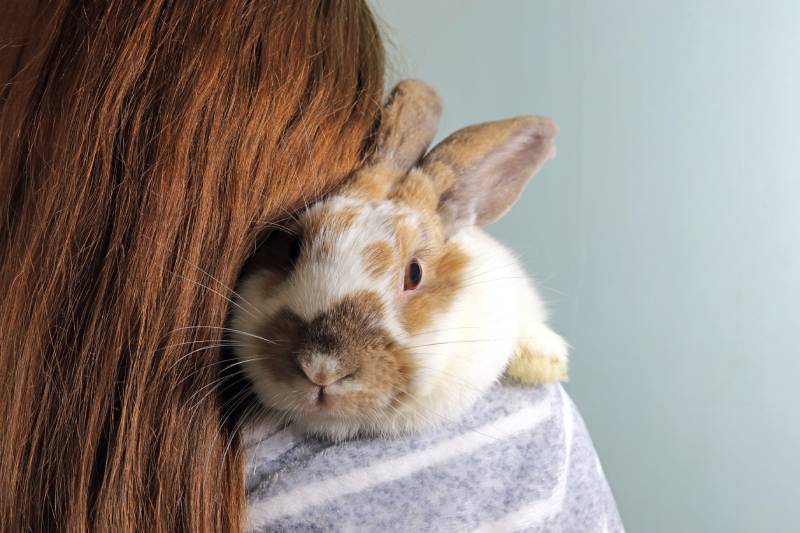
8. Mating Behavior
Grunting in rabbits can also be a sign of mating behavior. If your rabbit is not spayed or neutered, they may grunt when they are in heat or looking for a mate.
9. Feeling Threatened
Rabbits may grunt when they feel threatened by predators or other animals. This sound is a warning to others to stay away and can be accompanied by hiding or freezing behavior.
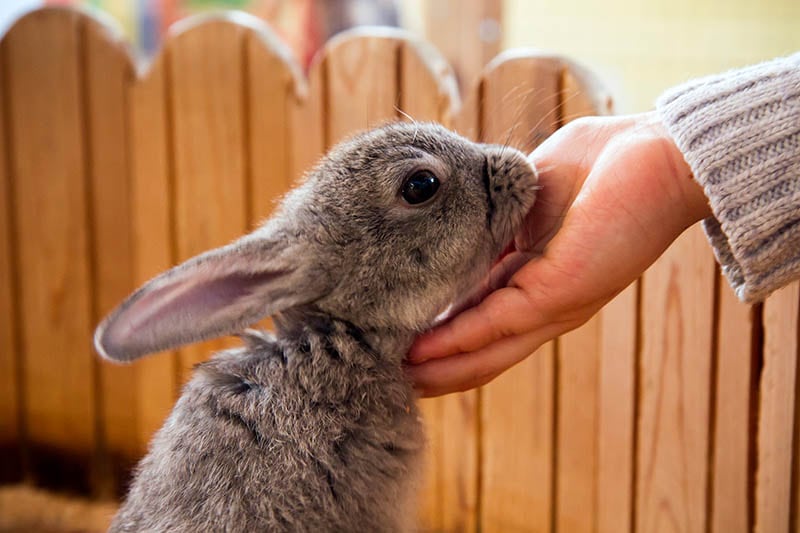
10. Hunger or Thirst
If your rabbit is hungry or thirsty, they may grunt to communicate their needs. Ensure that your rabbit has access to fresh water and the appropriate diet to satiate their hunger.
11. Social Hierarchy
Rabbits have a social hierarchy and will often grunt to assert their dominance over others. You may notice this behavior when introducing a new rabbit to an established group or in multi-rabbit households.
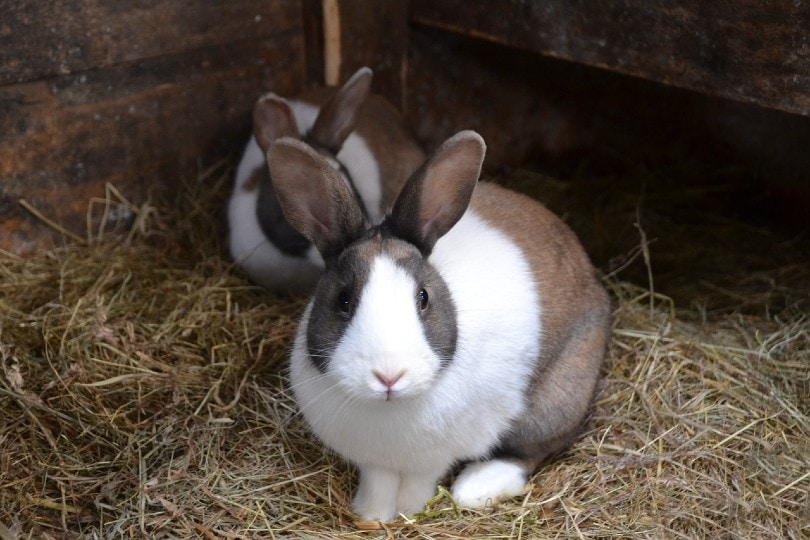
12. Playful Behavior
Rabbits are playful animals, and grunting may be a sign of excitement during playtime. This is especially common in young rabbits who are still developing their social skills.
13. Aging Behavior
As rabbits age, they may grunt more frequently due to various medical conditions associated with old age. Monitoring your rabbit’s grunting behavior as they age and seeking veterinary attention if necessary is essential.
Frequent Asked Questions About Rabbit Grunting
What does rabbit grunting sound like?
Rabbit grunting sounds like a low, throaty growl. The sound is meant to be a warning or sign of displeasure.

How do I know if my rabbit is grunting in discomfort?
If your rabbit grunts frequently or displays other signs of distress, such as hiding and freezing behavior, it may indicate pain or discomfort. It’s best to take your rabbit to the vet for a check-up if you suspect any medical issues.
Is grunting in rabbits normal?
Grunting is a normal behavior in rabbits and can be used to communicate various things, such as fear, affection, dominance, or hunger. However, frequent grunting may be a sign of discomfort or pain and should be monitored closely. If you notice persistent grunting in your rabbit, seek veterinary attention to ensure they are healthy and well cared for.
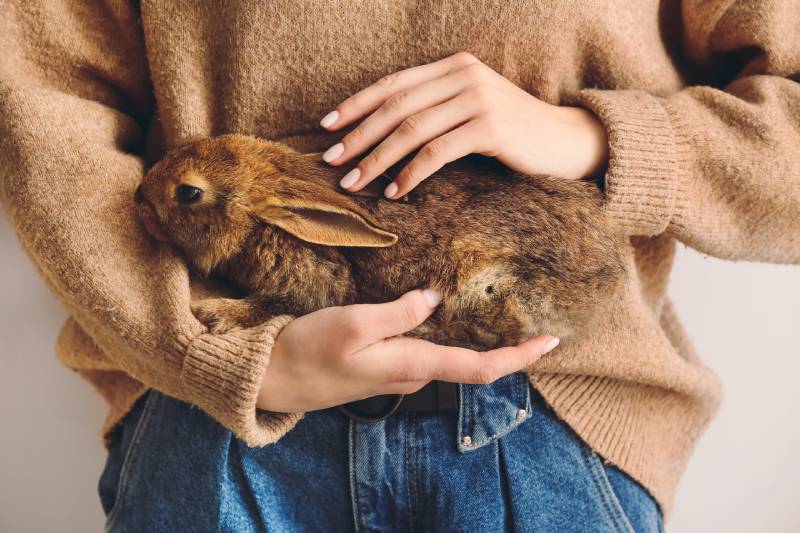
How can I reduce rabbit grunting?
Providing your rabbit with a safe and secure environment is the best way to reduce any form of territorial grunting. Make sure they have adequate space and resources, such as food, water, toys, and attention. Provide reassurance and comfort if you notice any signs of fear or discomfort in your rabbit. Additionally, if your rabbit is not spayed or neutered, it may be beneficial to do so to reduce overall territorial behavior.
What sounds do rabbits make when they’re happy?
Rabbits make a variety of sounds to express their emotions. In addition to grunting, they may also purr, thump their hind legs, or even “dance” when they are happy or excited. They may also chatter their teeth and lick you as signs of affection.

What other sounds do rabbits make?
In addition to grunting, rabbits may also make purring, thumping, and squeaking noises. Purring is usually a sign of contentment or pleasure while thumping and squeaking are often indicators of fear or displeasure. Additionally, some rabbits may even bark or scream if they feel scared or threatened. Understanding the context in which these sounds are given will help you better understand your rabbit’s behavior.
What should I do if my rabbit is growling?
Growling in rabbits is usually a sign of aggression or territorial behavior, and it is important to respond appropriately. You can try distracting the rabbit with toys or treats or removing the source of stress or fear from the environment. If growling persists, contacting a vet for further advice is best. Additionally, providing your rabbit with plenty of enrichment and a safe space may help any territorial behavior.
Summary
Grunting is a natural behavior in rabbits and can indicate a range of emotions, from fear to excitement. Knowing the different types of grunting behavior can help you better understand your rabbit’s needs and care for them more effectively. Doing so will not only make sure your rabbit is happy and healthy, but it will strengthen your bond!
Featured Image Credit: FiledIMAGE, Shutterstock




